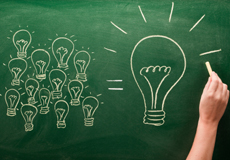The Institute of Electrical and Electronics Engineers (IEEE) suggests that 85 percent of tasks in an average person’s daily life will include game elements by 2020. Gamification is already being integrated into social media, data collection, the healthcare industry and more. Social media sites including Foursquare, Yelp and Facebook are incorporating game and reward features. For example, they encourage users to check into restaurants by rewarding them with badges and titles, such as “mayor” of a restaurant.
 Gamification is also occurring in the healthcare industry. Many companies and universities train potential doctors how to carry out medical procedures by using a game.
Gamification is also occurring in the healthcare industry. Many companies and universities train potential doctors how to carry out medical procedures by using a game.
Large companies are beginning to use games to encourage employees to pursue healthy behavior by awarding points that can be redeemed for monetary rewards or discounts on insurance premiums.
“As technology improves, the IEEE predicts gamification will become more prevalent in business,” reports Technology Advice.
“By 2020, however many points you have at work will help determine the kind of raise you get or which office you sit in,” suggests IEEE member Tom Coughlin.
“Our mobile devices will be the hub for all the ‘games’ we’ll be playing throughout a normal day by tracking the data we submit and using it to connect everything,” adds longtime IEEE member Richard Garriott.
This system has potential to benefit both employers and employees. It allows employers to make promotion and other decisions based on quantified data, and also allows employees to have a clear idea of where they stand.
Google has taken this one step further by using gamification for data collection. Google’s subsidiary, Niantic Labs, created a game called “Ingress” that encourages users to submit interesting photos and allow Google to GPS track them. “Ingress” has over a million users, and has allowed Google Maps to collect vital new data.

No Comments Yet
You can be the first to comment!
Leave a comment
You must be logged in to post a comment.